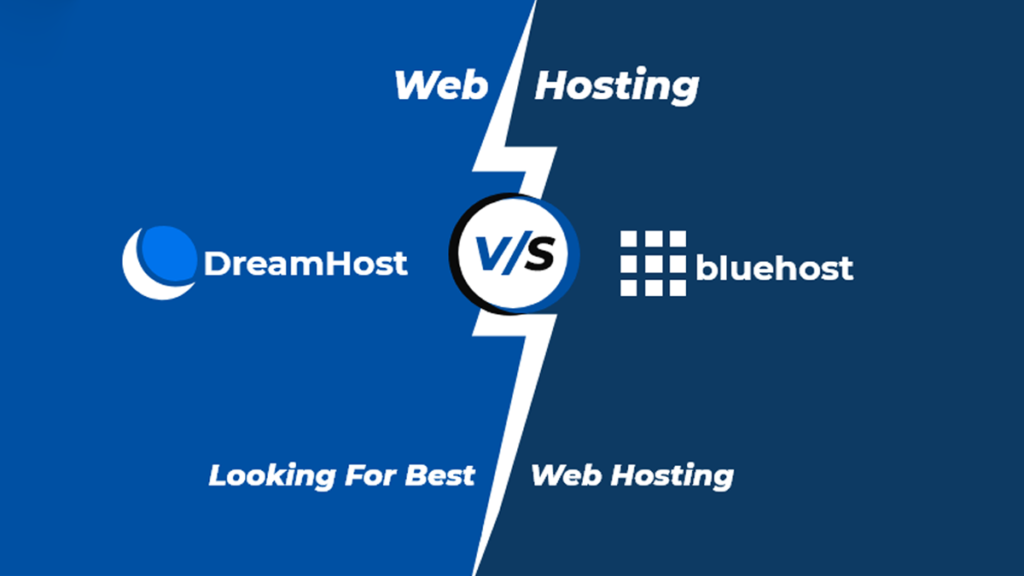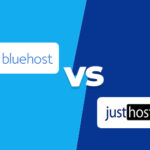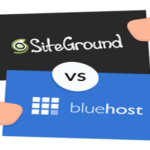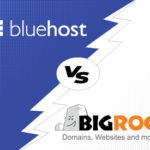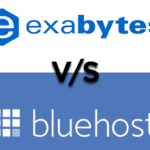In this comprehensive comparison between Bluehost vs DreamHost, we’ll highlight these two hosting providers’ shared attributes and distinctions. We conducted a thorough analysis encompassing factors like pricing, user-friendliness, performance, security, and customer support—crucial considerations for selecting the optimal provider for your website.
Drawing a parallel between Bluehost and DreamHost is akin to pitting Ares against Mars in a boxing ring, given their stature as two major WordPress-focused hosts. Both claim to be the finest, even boasting the same WordPress recommendation. While likening hosting providers to gods of war may be extravagant, it emphasizes the gravity of the comparison.
Therefore, this evaluation doesn’t aim to label one as superior or inferior. We’re dealing with two formidable contenders here.
With this in mind, we procured plans for Bluehost vs DreamHost, subjecting them to rigorous scrutiny. It’s time to ascertain which one emerges as the stronger contender.
Ease of use
Both providers offer user-friendly default dashboards that facilitate easy navigation. We contend that Bluehost, with its cPanel, provides a more user-friendly experience overall. DreamHost, on the other hand, presents a custom dashboard that might pose a steeper learning curve for beginners despite encompassing all essential tools.
Upon initiating the service for the first time, both providers extend the option to install WordPress for you. This action leads you to a dashboard where you can manage and configure your site(s). Both platforms employ a left-hand side menu to house their management tools. However, Bluehost’s shortcuts are more intuitive. For instance, the “My sites” shortcut grants direct access to all hosted websites, whereas DreamHost’s approach is slightly more intricate for the same task.
In summary, both platforms boast intuitive and robust control panels. Nevertheless, Bluehost offers a more straightforward navigation experience.
Pricing Plan
Both providers provide the three primary types of hosting, including dedicated, shared, and VPS hosting. Additionally, they offer specialized hosting options for WordPress and WooCommerce. These WordPress and WooCommerce hosting plans are optimized shared hosting plans tailored for WordPress websites and online stores built with WordPress.
If you’re in the market for reseller hosting, it’s important to note that neither Bluehost nor DreamHost provides in-house reseller hosting plans. For those interested in reseller hosting, you may want to explore other options, and you can refer to our list of the best reseller hosting providers for a starting point. Bluehost, however, does recommend ResellerClub as a third-party alternative.
A cursory glance might suggest that the introductory prices for Bluehost and DreamHost are identical. However, there’s more to the pricing structure than meets the eye:
Bluehost’s introductory prices commence at $2.95 per month, with renewal prices starting at $7.99 monthly.
DreamHost’s introductory prices start at $2.59 per month, and its renewal prices start at $5.99 monthly
Performance
Bluehost vs DreamHost both maintain a similar uptime rate of approximately 99.8%, aligning with industry standards. Bluehost’s servers exhibited an average uptime of 99.854% over the last 30 days, while DreamHost servers maintained an average uptime of 99.8% throughout the past year.
In terms of uptime guarantee, DreamHost takes the lead. They provide customers with a 100% uptime guarantee, a feature not offered by Bluehost. Although DreamHost falls slightly short of achieving this guarantee, with an uptime of 99.8%, the assurance ensures compensation for any downtime in the form of a rebate on the billing cycle.
Security
Both Dreamhost and Bluehost provide comparable security features, including complimentary SSL certificates. DreamHost offers DreamShield at $3 per month, while Bluehost’s security package, SiteLock, is available at varying monthly rates from $6.99 to $29.99.
Furthermore, Dreamhost goes the extra mile by including robust security features across all plan levels. These encompass a high-performance reverse proxy web application firewall, default encryption via HTTP/2, and Mod_security—a web application firewall for Apache that bolsters protection against diverse attacks, ensuring your website remains secure.
Customer Support
Bluehost employs a multi-channel support approach, providing a toll-free number, a ticketing system, email support, and 24/7 live chat assistance. While specific response times aren’t defined for email and ticketing support, the turnaround is generally swift. Additionally, Bluehost extends complimentary consultations in data security, traffic generation, and website performance. Their extensive knowledge base and active membership forum are valuable resources for independent issue resolution.
DreamHost offers a similar range of customer support options, with the key distinction being their live chat availability. Live chat support is accessible from 5:30 AM to 9:30 PM PST; however, there may be delays or unavailability during peak times. Unlike Bluehost, DreamHost does not provide a toll-free line. They offer a tech support callback option, but excessive use may incur charges.
While DreamHost’s knowledge base is equally comprehensive overall, Bluehost stands out for its more extensive and robust customer support offerings.
Conclusion
While Bluehost emerges as the victor in the DreamHost vs Bluehost comparison, DreamHost excels in key areas such as features, uptime, security, and migration.
Bluehost stands out as the ultimate winner in this debate. However, there may be better fits for some users. We recommend DreamHost for budget-conscious individuals with smaller websites looking for an affordable and high-value hosting solution to launch their site. This option is also ideal for those focusing on blogging. Conversely, if your plans involve generating substantial content or conducting e-commerce, especially with increasing traffic, then Bluehost undoubtedly presents the superior choice.


